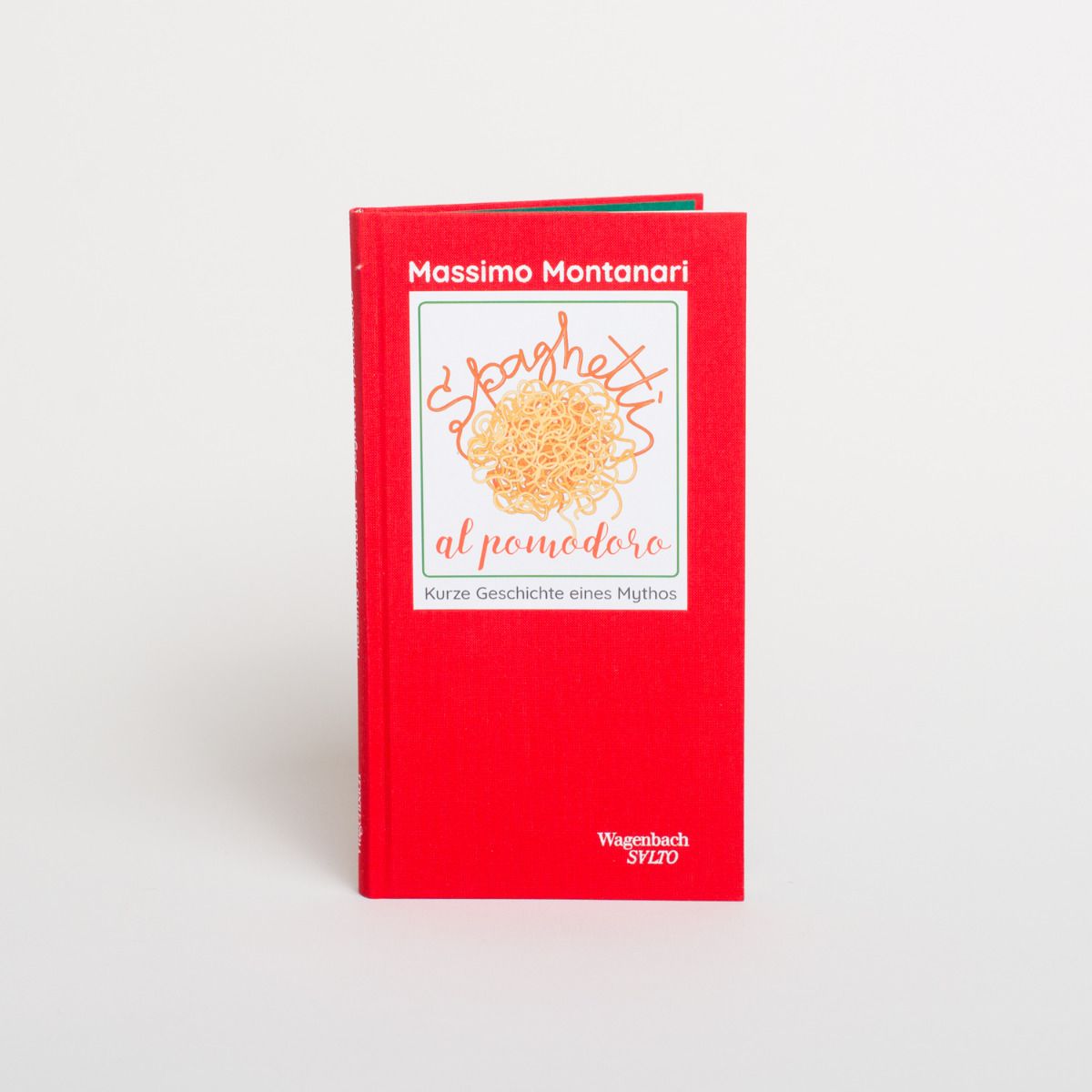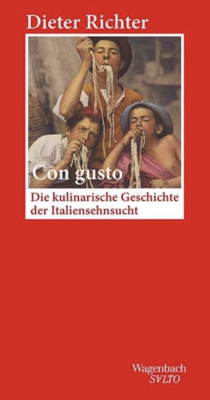Spaghetti al Pomodoro von Massimo Montanari
Kurze Geschichte eines Mythos
Aus dem Italienischen von Victoria Lorini
Sprache: Deutsch
-A short history of a myth
Translated from the Italian by Victoria Lorini
Language: German
Maccheroni, Tagliatelle, Vermicelli …
der große Historiker der europäischen Ernährungsgeschichte hat mit »gusto«
ein kleines Meisterwerk über die Mutter aller italienischen Gerichte verfasst.
Elegant und aus seinem großen Forschungswissen schöpfend
erzählt Massimo Montanari die Geschichte dieses Gerichts und räumt dabei
mit all den kursierenden Halbwahrheiten und Vorurteilen auf.
Wir erfahren, wie die Pasta als Variante des orientalischen Fladenbrots entstand,
wie die Araber einen neuen Typ aus Hartweizen verbreiteten und in Sizilien schon im 12.
Jahrhundert industrielle Fertigung eingeführt wurde (kein bisschen handgemacht von der Mamma).
Und dass die getrocknete Pasta zwei Stunden gekocht wurde (von »al dente« keine Rede).
Pfeffer und Hartkäse kommen ins Spiel, Tomaten in Form der »spanischen Sauce« auf den Teller, die Gabel auf den Tisch.
Die Raffinesse zieht ein mit Peperoncino, Knoblauch und Zwiebel, die Farbe mit dem Basilikum.
Und natürlich geht es auch ums Olivenöl – von dem jeder gern behauptet, das beste komme aus seiner Gegend.
Montanari zeigt, wie das Lob des Herkunftsgebiets zu Intoleranz
und Fanatismus führt und die Ursprünge der Pasta mystifiziert werden.
Eine leicht genießbare, aber gehaltvolle und unterhaltsame Lektüre.
Und die Ursprünge der Pasta in China? Fake news!
***
Maccheroni, tagliatelle, vermicelli ...
the great historian of European food history has written a small masterpiece about the mother of all Italian dishes.
a small masterpiece about the mother of all Italian dishes.
Elegantly and drawing on his vast research knowledge
Massimo Montanari tells the story of this dish and dispels all the half-truths that have
all the half-truths and prejudices that circulate.
We learn how pasta originated as a variant of the oriental flatbread,
how the Arabs introduced a new type made from durum wheat, and how industrial production was introduced in Sicily as early as the 12th century.
In Sicily, industrial production was introduced as early as the 12th century (not a bit handmade by the mamma).
And that the dried pasta was cooked for two hours (no mention of "al dente").
Pepper and hard cheese come into play, tomatoes in the form of the "Spanish sauce" on the plate, the fork on the table.
Sophistication comes in with peperoncino, garlic and onion, colour with basil.
And of course it's all about olive oil - of which everyone likes to claim that the best comes from their region.
Montanari shows how the praise of the region of origin leads to intolerance and fanaticism.
intolerance and fanaticism, and how the origins of pasta are mystified.
An easily enjoyable but substantial and entertaining read.
And the origins of pasta in China? Fake news!
No Brand info available for this Product.


